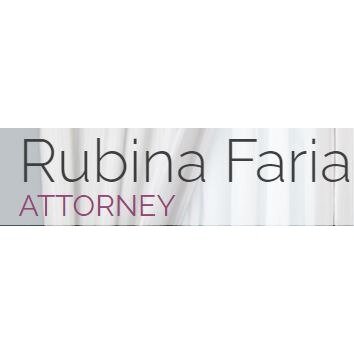Best Inheritance Law Lawyers in Funchal
Share your needs with us, get contacted by law firms.
Free. Takes 2 min.
List of the best lawyers in Funchal, Portugal
1. About Inheritance Law in Funchal, Portugal
Inheritance law in Funchal follows the national Portuguese Civil Code, with procedures carried out under the Portuguese Code of Civil Procedure. In practice, residents of Madeira use the same core rules as the mainland, including testaments, intestate succession, and the inventory and partition of estates. Local realities in Funchal often involve real estate located in Madeira, requiring careful title checks and coordinated filings with local authorities.
Key ideas to understand are the concepts of testamentary disposition, forced heirship (legítima), and the inventory and partition process (inventário e partilha). A properly drafted will and timely administration can prevent disputes among heirs and minimize delays in transferring ownership of Madeira properties. Working with a solicitor who understands local registries and notarial practices can make a meaningful difference.
In Madeira and mainland Portugal, the basic framework for inheritance is the same, with regional administration handled through local civil registries and courts.Diário da República
2. Why You May Need a Lawyer
These real-world scenarios show when people in Funchal typically seek Inheritance Law legal help. Each situation involves specific steps where professional guidance matters.
- A child and a surviving spouse disagree over how a house in Funchal should be divided after the parent dies. A lawyer helps interpret legitima rights and negotiates a fair partition.
- A will exists, but its validity is questioned because it was drafted abroad or under unfamiliar formalities. An attorney assesses legitimacy and challenges or defends the will in court if needed.
- Property in Madeira is part of an intestate estate. Without a will, heirs must navigate a formal inventory and court-ordered distribution that a solicitor can guide through efficiently.
- Heirs living outside Portugal inherit assets in Funchal. A local advisor coordinates with foreign counsel to handle cross-border questions, taxes, and registration changes.
- A family wants to restructure ownership of a shared apartment in Funchal to prevent future disputes. A legal counsel drafts clear title deeds and the necessary covenants for shared ownership.
- An estate includes business interests or multiple properties. A lawyer helps with asset valuation, tax planning, and compliance during the inventory and share out process.
3. Local Laws Overview
The core rules governing Inheritance Law in Funchal come from national statutes. Two main areas are the substantive rules of succession and the procedural steps to administer an estate.
Código Civil (Portuguese Civil Code) governs who inherits and how the estate is divided, including the concept of legítima and the rights of spouses and children. This framework applies uniformly across Madeira and the mainland.
Código de Processo Civil (Code of Civil Procedure) regulates the inventory and partition process, including timelines, court involvement, and the role of notaries and registries in estates.
Código do Imposto do Selo (Stamp Duty Code) covers tax aspects of inheritance and related transfers. The law explains when stamp duty applies to transmissions by death and the applicable rates for different asset types.
Inheritance matters in Madeira follow national law, with local courts and registries implementing the procedural steps for estates.Secretaria Regional do Governo da Madeira
The primary sources for the rules are the Código Civil and the Código de Processo Civil, with related tax implications governed by the Código do Imposto do Selo.Diário da República
4. Frequently Asked Questions
What is the difference between a will and intestate succession?
A will specifies how assets should be distributed after death. Intestate succession occurs when there is no valid will, and the estate passes to heirs under legal rules. In both cases, meubels in Madeira may require an inventory and court approval.
How do I start an inheritance inventory in Funchal?
Begin by gathering death certificates, the will if present, property deeds, and a list of assets. A Portuguese solicitor helps file the inventory with the local civil court and coordinates with registries.
What documents are needed to prove heirs’ rights?
You typically need death certificates, birth certificates for potential heirs, proof of relationship to the decedent, and any wills or prior declarations. The exact list varies by case and asset type.
How long does an inheritance process usually take in Madeira?
Simple cases may finish in several months, while complex estates with real estate and international heirs can take a year or more. Timelines depend on court schedules and the clarity of asset ownership.
Do I need a solicitor for probate in Madeira?
While not strictly mandatory, a solicitor significantly reduces risk of errors and delays. A local attorney understands registry requirements, notarization steps, and regional practices.
What is legítima and how does it affect a will?
Legítima is the portion of the estate reserved by law for certain heirs. A Will cannot freely disinherit heirs beyond this reserved portion. A lawyer helps assess available discretionary share and potential adjustments.
Is there a difference between a will and a living will for inheritance purposes?
A will is a posthumous directive about asset distribution; a living will relates to medical decisions while alive. Inheritance matters mainly involve the testamentary document and its execution after death.
What costs should I expect for an inheritance case in Madeira?
Costs include solicitor fees, court fees, and notary charges. Fees vary with complexity, asset type, and whether litigation is needed. An initial consultation helps estimate total costs.
How long should I keep inheritance records after a case closes?
Keep documents for at least six to ten years, depending on asset categories and tax considerations. Long-term records help with future taxes, property transfers, and potential disputes.
What happens if a beneficiary lives abroad?
The process can involve cross-border coordination, translation of documents, and tasking local and foreign counsel. An experienced lawyer eases the multi-jurisdictional aspects.
What is the difference between the roles of a solicitor and a notary in inheritance cases?
Solicitors provide legal advice and represent clients in court. Notaries handle formalities for wills and property deeds. Inheritance matters often require both professionals to complete filings and transfers.
Can a will be challenged after death in Funchal?
Yes, a will can be contested if there are claims of invalidity or improperly satisfied legítima. Legal representation helps assess grounds and pursue or defend challenges.
5. Additional Resources
These official resources provide authoritative information on inheritance, taxes, and civil procedures relevant to Funchal and Madeira.
- Autoridade Tributária e Aduaneira (AT) - Official tax authority; information on Imposto do Selo and tax implications of inheritance. https://www.portaldasfinancas.gov.pt
- Diário da República (DRE) - Official gazette publishing laws and updates to civil and tax rules. https://dre.pt
- Portal do Governo - Official government portal with guidance on civil law processes and citizen services. https://www.portugal.gov.pt
6. Next Steps
- Identify your goal and the type of estate involved, noting any real estate in Madeira and potential heirs.
- Gather essential documents: death certificate, will (if any), asset list, property deeds, and heir documents.
- Consult a Madeira-based solicitor specializing in inheritance to assess the case quickly.
- Request a preliminary case plan, including a timeline, costs, and required filings for inventory and transfers.
- Prepare for inventory and valuation by collecting property appraisals, bank statements, and business records.
- File the inventory with the appropriate civil court and begin the formal transfer processes for Madeira assets.
- Monitor deadlines and respond promptly to any court or registry requests to avoid delays.
Lawzana helps you find the best lawyers and law firms in Funchal through a curated and pre-screened list of qualified legal professionals. Our platform offers rankings and detailed profiles of attorneys and law firms, allowing you to compare based on practice areas, including Inheritance Law, experience, and client feedback.
Each profile includes a description of the firm's areas of practice, client reviews, team members and partners, year of establishment, spoken languages, office locations, contact information, social media presence, and any published articles or resources. Most firms on our platform speak English and are experienced in both local and international legal matters.
Get a quote from top-rated law firms in Funchal, Portugal — quickly, securely, and without unnecessary hassle.
Disclaimer:
The information provided on this page is for general informational purposes only and does not constitute legal advice. While we strive to ensure the accuracy and relevance of the content, legal information may change over time, and interpretations of the law can vary. You should always consult with a qualified legal professional for advice specific to your situation.
We disclaim all liability for actions taken or not taken based on the content of this page. If you believe any information is incorrect or outdated, please contact us, and we will review and update it where appropriate.









